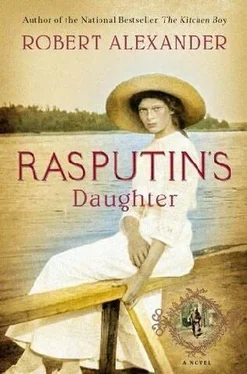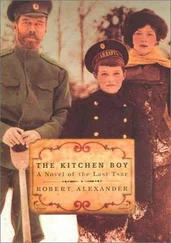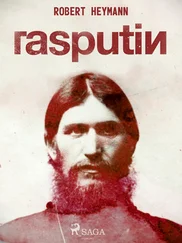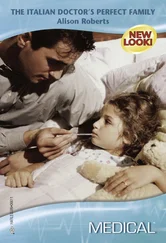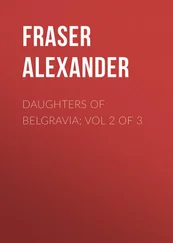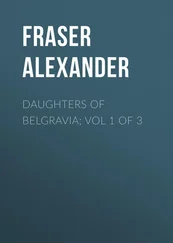Would he really come to our house in two hours’ time? I had to believe he would, for the thought that he wouldn’t was almost too painful to bear. I knew, of course, that if he didn’t show up, I would have to end it all, whatever hopes and dreams I had. But at least he’d told me what my heart needed to know-he hadn’t, after all, betrayed me. I believed him. Even more, I believed that he cared every bit as much for me as I did for him.
Shaking my head, I hurried from the teahouse and into the chilly air. Within minutes I was making my way once again along the Fontanka. As I stared across the frozen waters, I knew something had been rekindled, something I had thought long extinguished. I knew that what I felt was going to burn a good long while, if not forever. And it was going to hurt, of that I was sure.
But I had a task to do, did I not? Although I was tempted to return home and wallow in self-pity, I continued toward Nevsky Prospekt, my pace slower than before, my thoughts far sadder. In the harshest way, I had come to understand that Papa was a lover of a great many, something I knew for certain I could never be. Indeed, I was beginning to realize my heart had been stolen by one person and I doubted if I would ever recover it-even if I never saw Sasha again.
As I approached 46 Fontanka, the palace of the very noble Galitzine family, I glanced up and saw the elegant figure of Countess Carlowa herself staring anxiously, it seemed, from the center box bay window on the second floor. She’d been pointed out to me before, so I knew it was her, and there she now stood in a long blue silk dress with a strand of pearls draped from her neck. She turned and glanced down at me on the sidewalk, and our eyes met for the briefest of moments. I knew of the sadness overwhelming me, but what of her? Why did she appear so anxious? Who knew what lay ahead for either one of us-for her, married into a branch of the Romanov family, and for me, daughter of an infamous peasant-but right then I couldn’t help but sense that she too felt as if we were treading a quagmire. Was Peter the Great’s beloved city, built by thousands of pathetically downtrodden serfs on nothing but swampland, about to open up and swallow the entire Empire? Perhaps. Rumor had it that even the Dowager Empress had fled the capital.
Glancing ahead, I spotted the massive bronze horses of the Anichkov Bridge, poised so elegantly at each corner, and, beneath them, seemingly in miniature, a sleek black horse pulling a fanciful sleigh across the Fontanka. Rather than proceeding as far as Nevsky, however, I stopped at the rear of the corner building, the huge red Sergeeivski Palace, which the Tsaritsa’s sister had all but abandoned after her husband was assassinated. Leaving her glittering position, the Grand Duchess Elizavyeta Fyodorovna had founded a monastery outside of Moscow, and now this most impressive palace was inhabited by her nephew and onetime ward, the young and dashing Grand Duke Dmitri Pavlovich.
I ducked through a narrow rear gate and into a dark alley that ran directly behind the palace, whereupon I immediately encountered a line of some thirty or forty destitute and freezing souls. Nearly half of them were soldiers, some missing both legs, some only one, while the rest were impoverished women and babushki, the entire shivering lot awaiting the grand duke’s mercy and maybe a tin cup of hot soup and a slice of black bread. Even in my simple cloak I was better dressed than any of them-indeed, some of the soldiers weren’t even wearing coats but stood there with filthy blankets over their shoulders. As soon as they spotted me weaving in and around them, a small charge rippled through the group, and any number of filthy, begging hands were thrust into my face. While these pour souls stood nearly freezing to death down here, I wondered what the young grand duke’s French chef was preparing for him upstairs on the belle étage. Caviar and veal, accompanied by a pleasant Baron de Rothschild wine? Crab and goose paté, served with an elegant French champagne?
Papa had strictly warned me to avoid such indigent groups, which, as the war dragged on, were cropping up all over the city. And he was absolutely right. I shouldn’t be back here mingling with them, not because they might attack me but because the threat of typhus and typhoid was growing day by day. From the moaning and hoarse coughs I heard, there was no doubt these people were either covered with lice or had drunk infected waters. Or both. For fear of being recognized, however, I knew I couldn’t go to the main entrance, so I pressed the folds of my cloak over my nose and mouth and tried to avoid brushing up against anyone. I didn’t waste a moment before proceeding to a large, rather dilapidated wooden door on which I quickly pounded.
“It’s no use,” said a worn voice behind me.
I turned and looked down at a sickly woman, bent and shivering on the frozen granite cobblestones. Her face was splotchy, her nose swollen and drippy, and her eyes weeping with yellow mucus. Though half her teeth were missing, she couldn’t have been more than forty. I supposed she would be dead within a week or two. Perhaps sooner.
“If the Grand Duchess Elizavyeta Fyodorovna were here, she wouldn’t leave us to freeze out outside like dogs,” the ill woman muttered, as spittle dripped in a long stream from her mouth. “But she’s off in Moscow at her monastery. They say she’s as beautiful as ever, though instead of gowns and jewels she now wears a gray habit. A pity for us, because”-and she swiped goo from her lips-“because now all we have is the young grand duke.”
“And he doesn’t care about the narod,” the masses, complained the scratchy voice of a man in line. “Two days ago he sent down a bit of soup, but that was all.”
“For the sake of God,” countered the woman, “let’s hope he does at least that again today.”
I kept pounding, harder and faster, and finally I heard a heavy bolt being worked and pulled aside. A long moment later, the door was cracked open, revealing a skinny old man with a huge forehead and narrow chin. His eyes were milky white and he leaned toward me, squinting like a mole.
“How many times do I have to tell you-sevodnya soopa nyetoo!” he shouted, like a prison guard.
“Please,” I said, “I’m not here today asking for soup.”
He looked me up and down but was obviously unable to see much. “Then who are you and what do you want?”
“I’m here to see Elena Borisovna.”
“And why should I admit you?”
I reached quickly into my pocket and pulled out a hundred-ruble note. When he failed to see the money, I took his hand and stuffed the bill into it.
“Here’s one hundred rubles for your trouble. Please, tell her that the daughter of Our Friend is here.”
He shrugged, massaged the note between his fingertips, and then pushed the door open. “Come in.”
Leaving the line of destitute women and soldiers in the cold, I stepped through the short doorway into a long dark corridor with a low arched brick ceiling. As soon as I was across the threshold, the old man slammed the thick door shut and slid a long iron bolt in place.
“Follow me,” he commanded.
“I would prefer to wait here,” I countered, handing him another hundred-ruble note.
He lifted the note close to his eyes and smiled. “Konyechno.” Of course.
Surely this old man had worked at the palace his entire life, perhaps as the cloakroom attendant, where he would have handled princely capes and furs until his vision deteriorated. In any case, palace intrigues were nothing new to him, and he tottered off, using one hand to feel his way along the heavy stone wall. My eyes did not leave him as he made his way to the far end of the corridor and disappeared to the left.
Читать дальше
